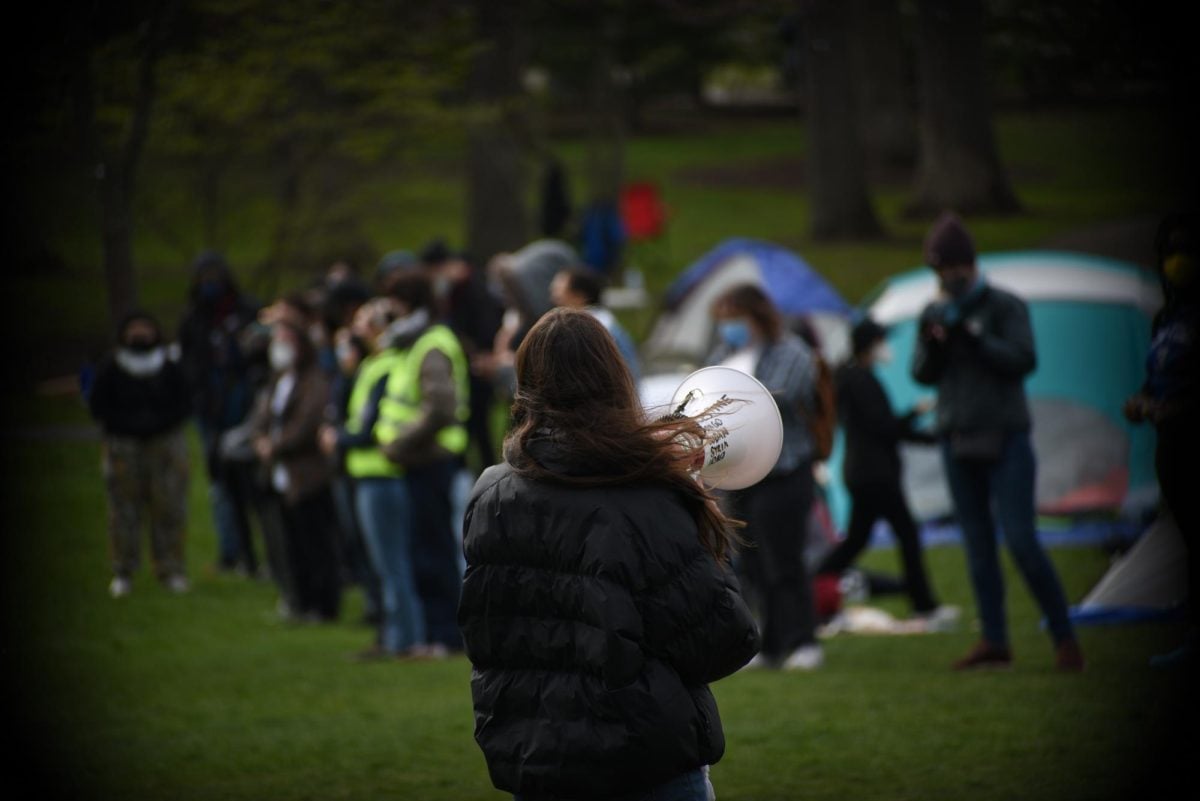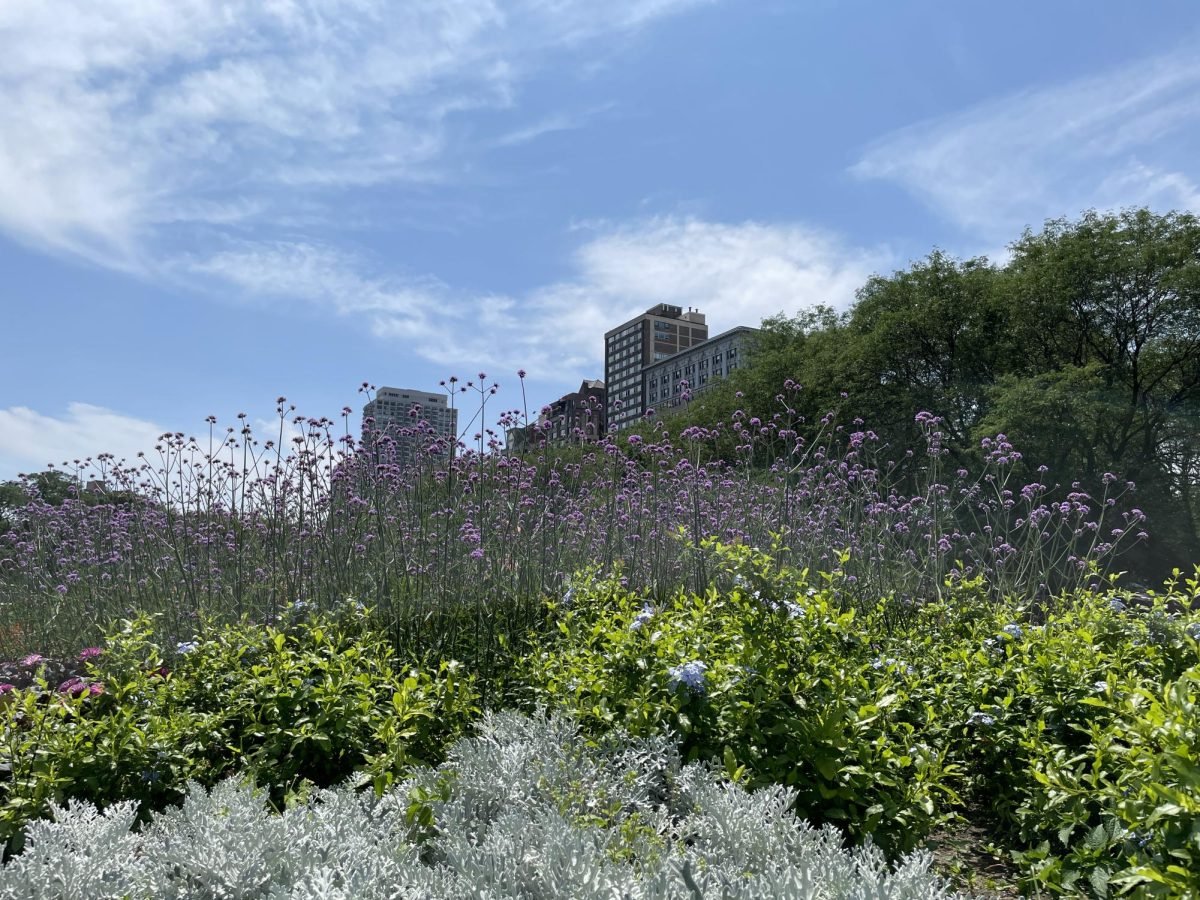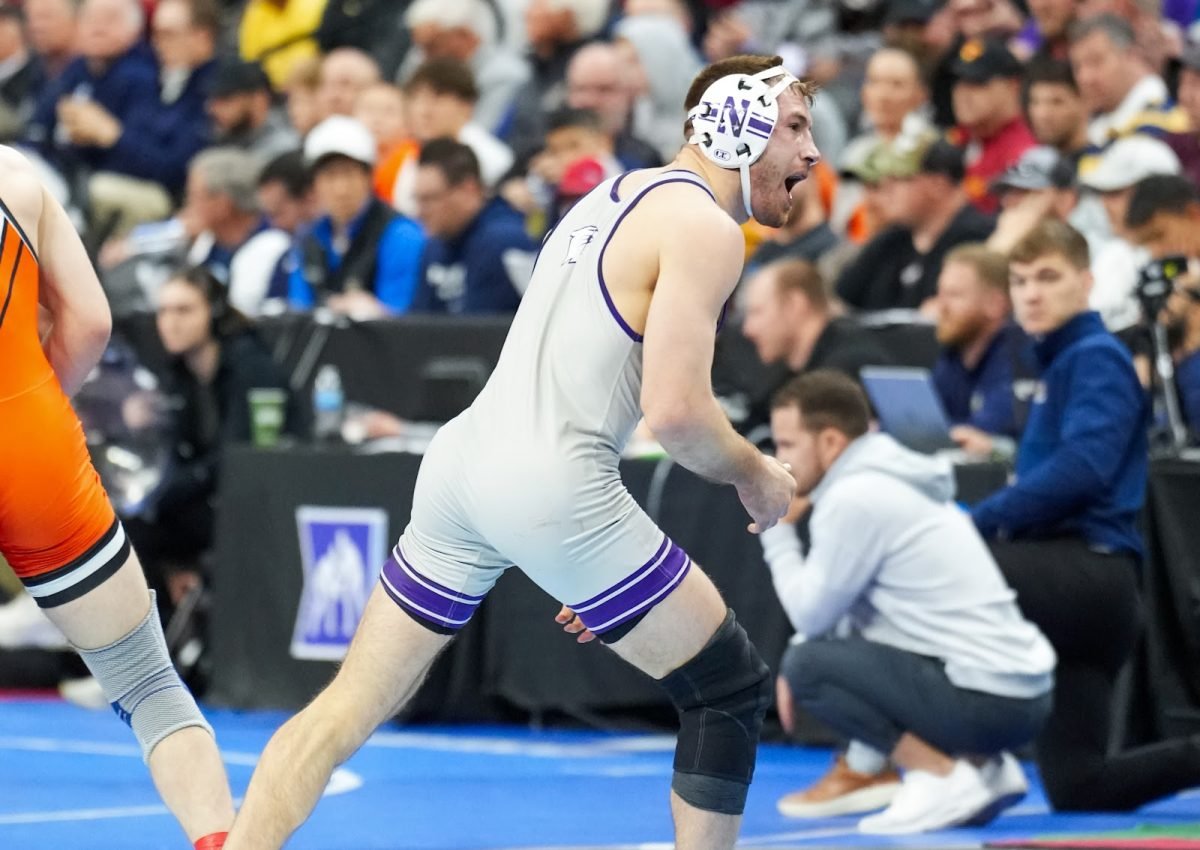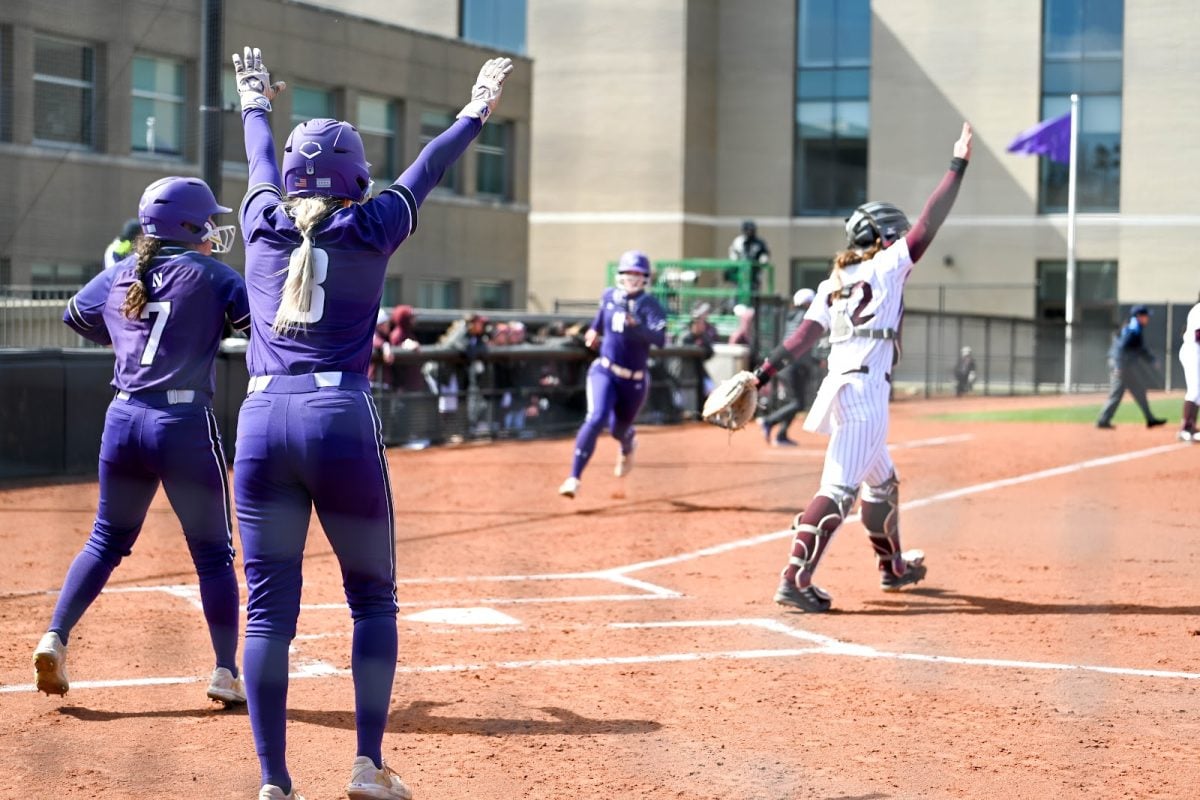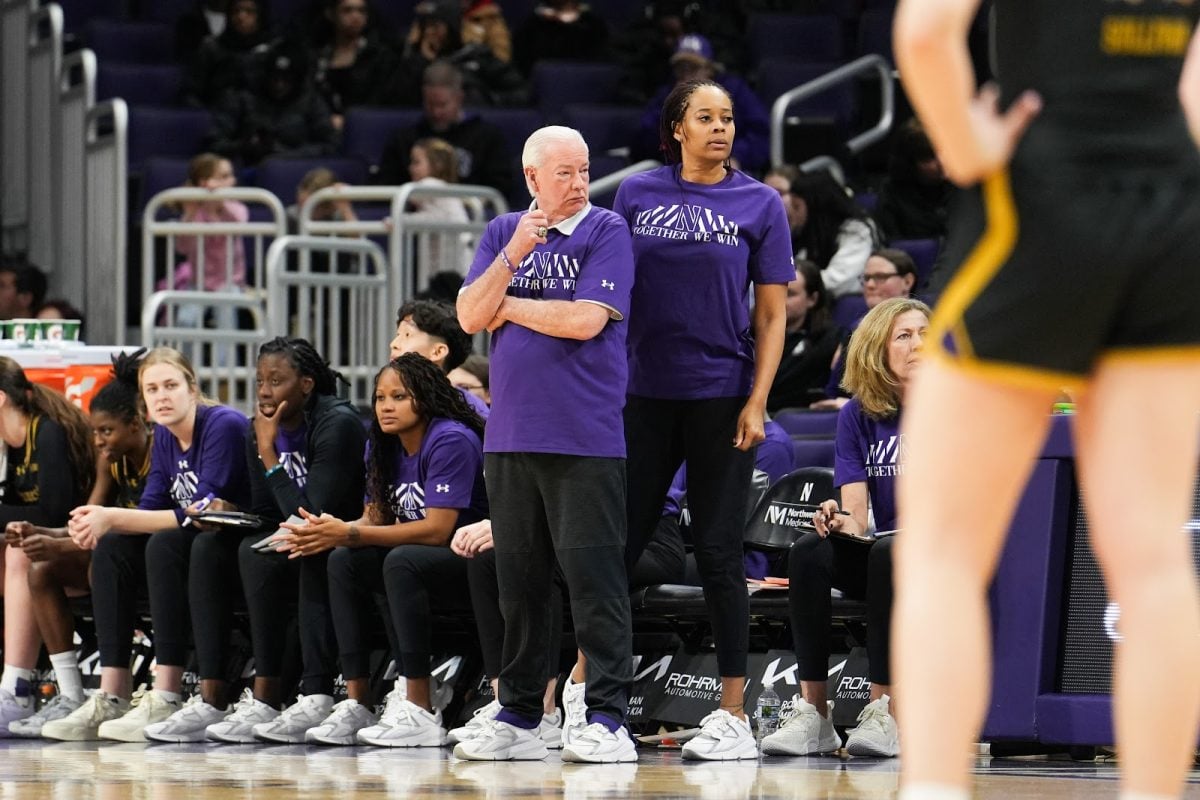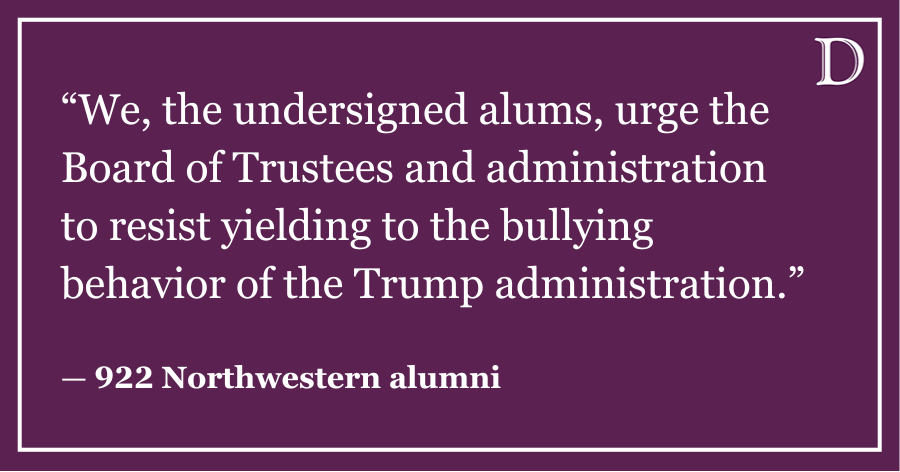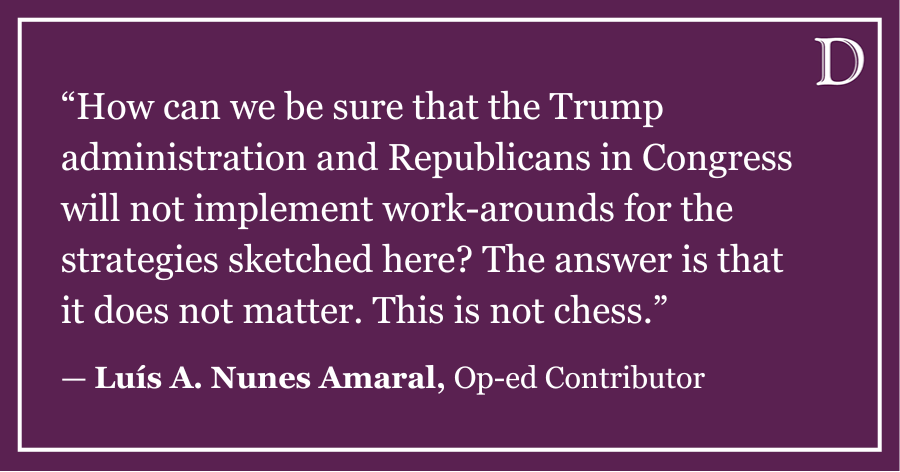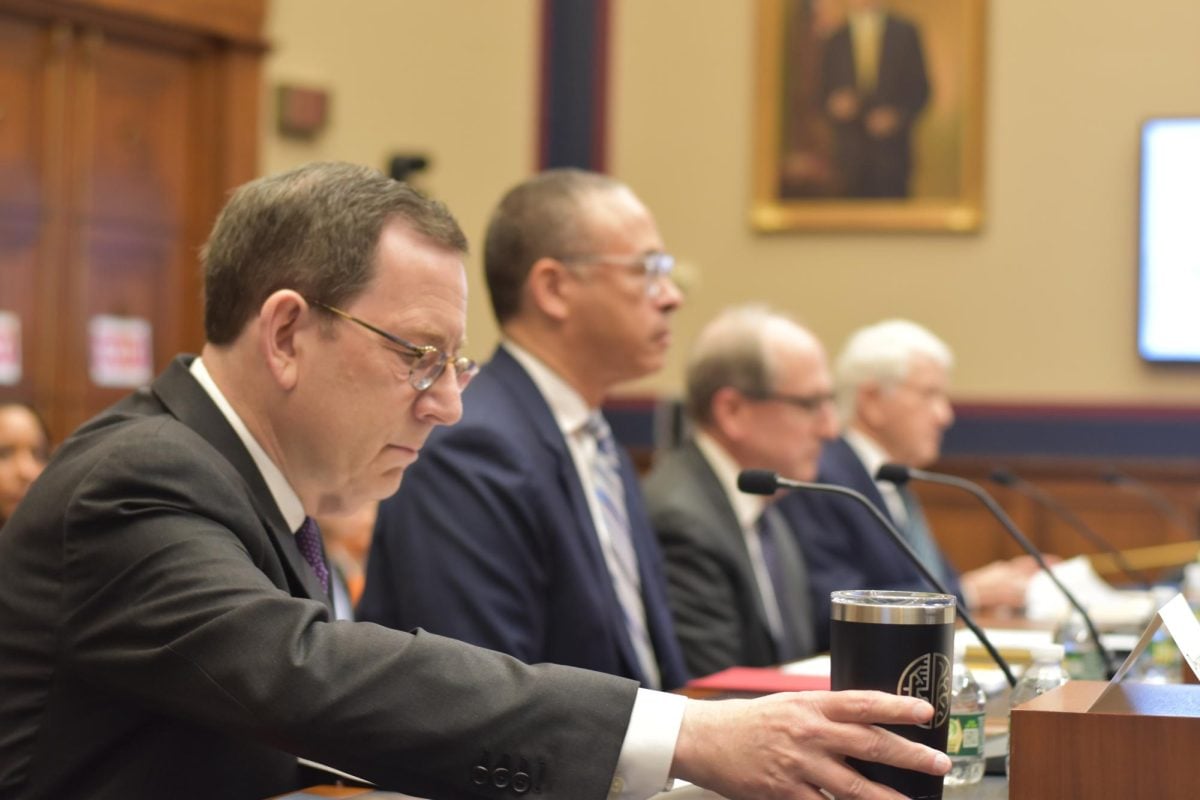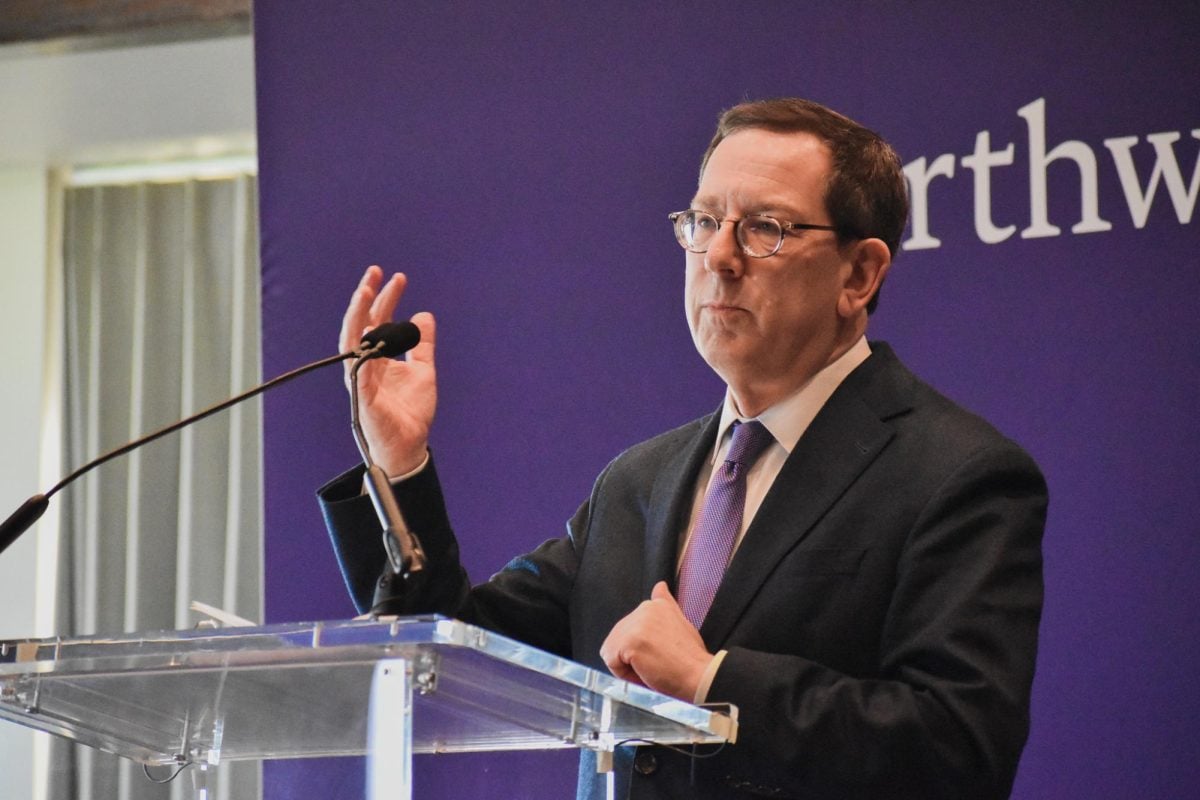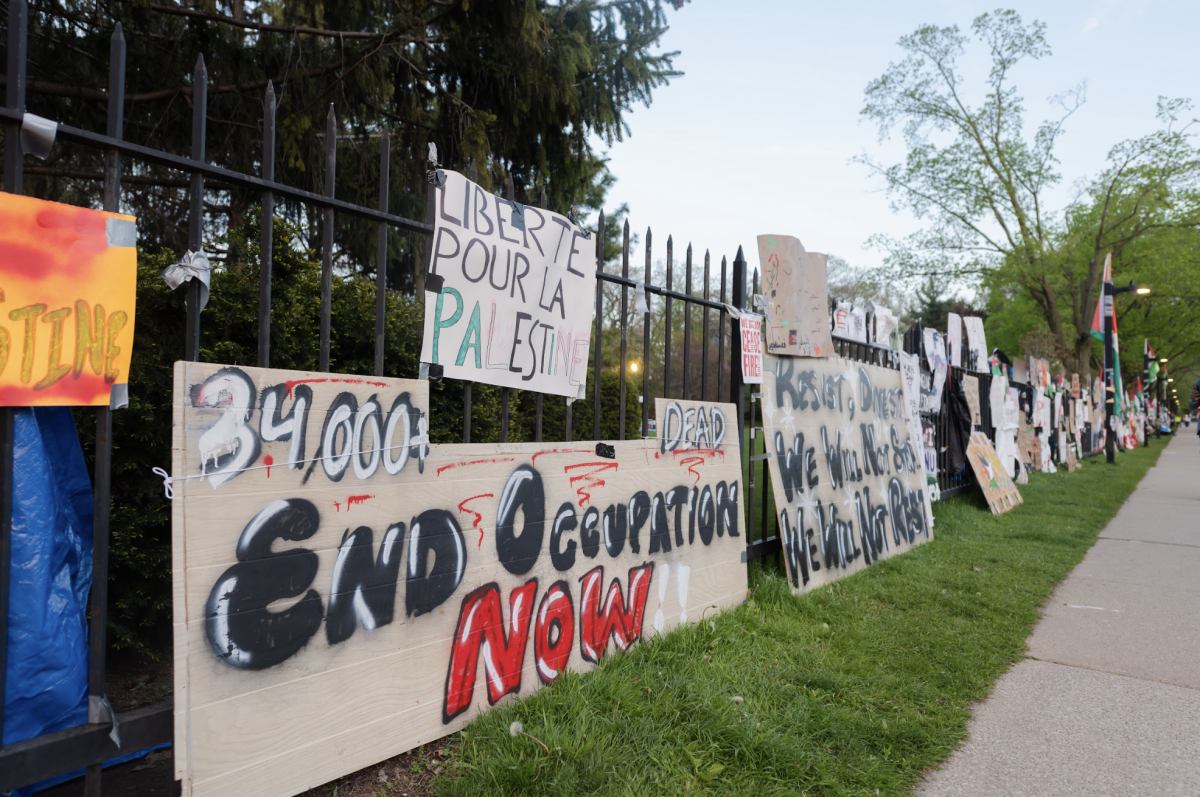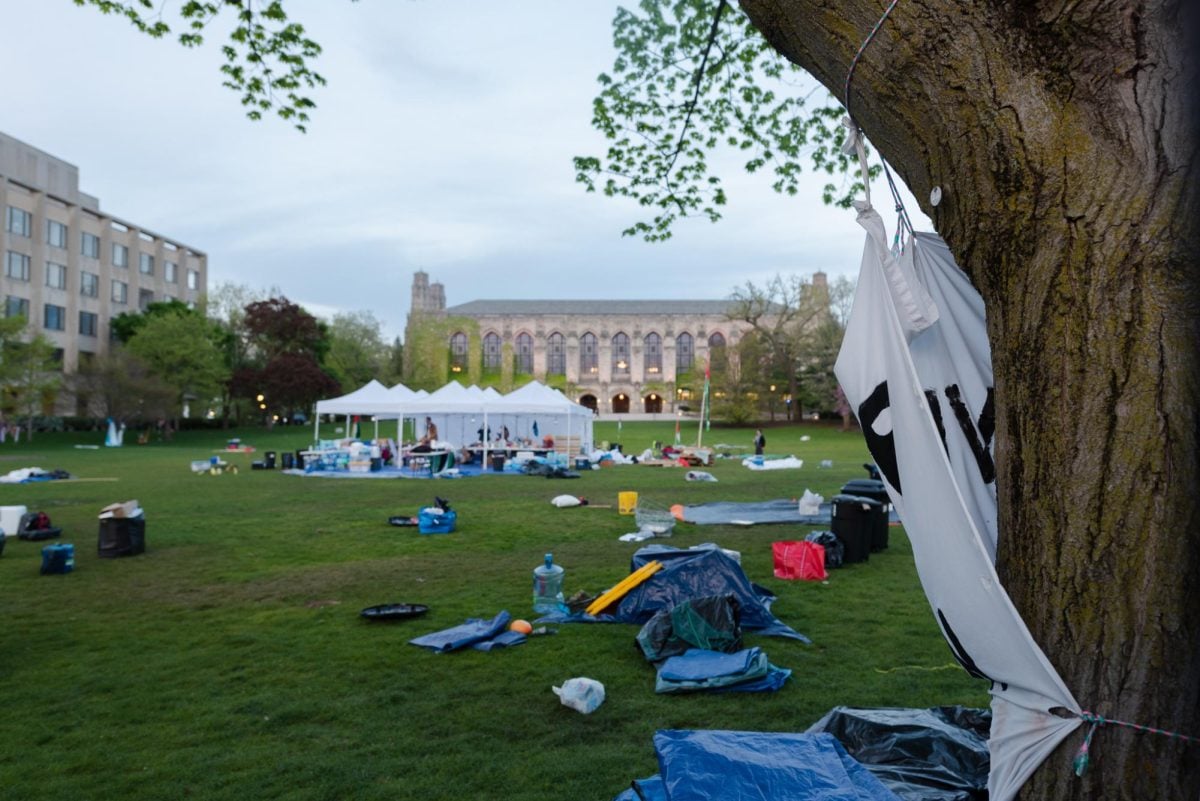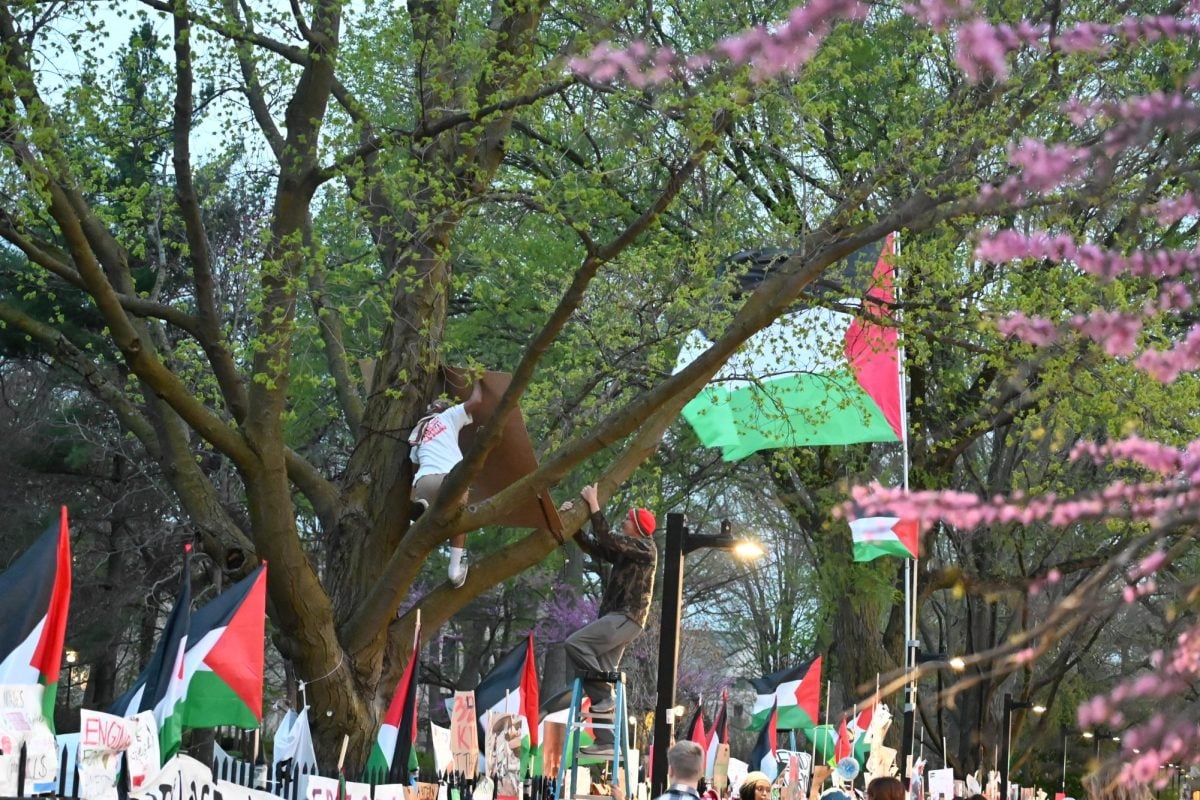 Daily staffers Samantha Powers, Jacob Wendler and Beatrice Villaflor discuss what they’ve seen in their reporting on the pro-Palestine encampment at Deering Meadow.
Daily staffers Samantha Powers, Jacob Wendler and Beatrice Villaflor discuss what they’ve seen in their reporting on the pro-Palestine encampment at Deering Meadow.
[nat sound of student activists chanting]
CARLOTTA ANGIOLILLO: On Thursday morning, about 50 student activists began setting up tents on Deering Meadow in an effort to pressure Northwestern to divest from companies and cut ties with institutions connected to Israel.
We are now well into the third day of the encampment with no clear end in sight. The Daily has had reporters on the ground for all 64 hours the encampment has been going.
Organizers have said students intend to remain on Deering Meadow until the University agrees to the demands laid out in a People’s Resolution circulated by Northwestern chapters of Students for Justice in Palestine, Jewish Voice for Peace and Educators for Justice in Palestine.
The encampment, organized by the Northwestern Divestment Coalition, comes as students across the country are protesting their universities’ involvement in Israel’s war in Gaza, with some facing arrests.
From the Daily Northwestern, I’m Carlotta Angiolillo, and today I’m here with Samantha Powers, Jacob Wendler and Beatrice Villaflor to discuss what they’ve seen in their reporting on the encampment.
JACOB WENDLER: I’m Jacob. I’m the editor-in-chief.
SAMANTHA POWERS: I’m Samantha. I’m one of the print managing editors.
BEATRICE VILLAFLOR: I’m Beatrice, I’m the campus editor.
CARLOTTA ANGIOLILLO: What are the demands of the student activists?
SAMANTHA POWERS: So there are three demands that protesters have outlined which were also enumerated in the People’s Resolution circulated this past Monday. Demand number one is to protect student civil liberties and safety as they continue to protest and participate in this encampment. Number two is for Northwestern to end partnerships with Israeli institutions, for example, the Israel Innovation Project, which is sort of an educational partnership with Israeli universities between Northwestern. The third demand is for Northwestern to disclose its investments and divest from Israeli-affiliated companies.
CARLOTTA ANGIOLILLO: What has the energy and atmosphere been like at the encampment and how has it changed over the past few days?
JACOB WENDLER: I would say it’s definitely fluctuated since the start of the encampment. Today, it’s very sunny outside. Most people are just sitting out there. It doesn’t look too different than Deering Meadow would on a normal sunny Saturday afternoon, other than the tents that are out there. But there’s been lots of chanting, singing, praying, speakers coming in and out and there have been times when it’s very quiet and calm and there’s not too many people there in the middle of the night. I would say the energy really hit its peak Thursday night when there were probably around 1,000 people on the meadow, if not more. And they had really loud speakers, blasting music, leading really energetic chants.
This is also when we were kind of anticipating possible police escalation because organizers said they’ve been told by administration in bargaining that they were going to get two warnings to disperse within two hours of bargaining. Obviously, that didn’t happen. But I would say there was both a lot of energy and passion as well as quite a bit of tension and anticipation of that. I would say that the crowd probably hit its smallest overnight last night after organizers announced they’d agreed with administrators that police wouldn’t be sent in overnight. So lots of folks, particularly students, went home to sleep in their beds knowing that they weren’t expecting escalation, who had been there for a while. And there was also some pretty heavy rain and frigid temperatures, So there were a smaller number of folks holding down the fort overnight.
SAMANTHA POWERS: Definitely. And demonstrators have been keeping up energy the whole time, but they’ve also had a lot of help from outside support systems. A lot of student organizations are volunteering food, time, money. People are donating meals, supplies like tarps and extra tents, new signs and a small barricade in case police arrived. But yeah, a lot of community support for sure. And even members of Chicago SJP have come to campus to participate in rallies and people are driving by constantly honking and waving, which I think is keeping morale up for demonstrators.
[nat sound of cars honking]
CARLOTTA ANGIOLILLO: How likely is it that there will eventually be arrests, citations or other disciplinary actions against the student activists?
JACOB WENDLER: It’s really hard to say right now. At the moment, we have no indication that the University intends to escalate or send in police. We’ve seen a small presence from Luna Security Services, which is Northwestern’s primary security contractor that they send in when there is divisive speakers or prominent politicians on campus who might need extra security. But right now there doesn’t appear to be any indication of escalation this weekend, but it’s unclear if that will change at any moment.
SAMANTHA POWERS: Yeah, I think NUPD vehicles continue to drive past periodically. Officers are certainly monitoring the situation, but I’ve heard from both demonstrators and officers that the goal right now is deescalation. So I don’t expect that to change anytime soon.
JACOB WENDLER: The university seems most interested in persuading organizers to remove tents and cease the use of bull horns, which were also two things that were enumerated in the interim addendum to the Code of Conduct on Demonstration Policy that President Schill announced Thursday morning. So if there were to be any sort of escalation, it seems that those would be the first demands from the University before sending in police, but it’s not entirely clear what their preferred course of action is.
SAMANTHA POWERS: Obviously, demonstrators have no intention of removing tents because, from what I’ve heard, that’s what gives them power at the marketing table.
CARLOTTA ANGIOLILLO: Based on where negotiations stand, what’s a realistic timeline for how the rest of the encampment will play out?
BEATRICE VILLAFLOR: That’s a really difficult question to answer. From what we’ve seen circulating from the coalition, they are looking for programmers until 4 to 5 a.m. on Monday morning. So I would likely say that the encampment may last until then. I would also say, given the fact that we’ve heard that negotiations are not currently happening over the weekend and will resume after the weekend, that’s a likely timeline.
SAMANTHA POWERS: Yeah, but already, our expectations have been proven wrong a couple of times now. We’ve heard multiple times that police might potentially be on their way about to make arrests. Even Thursday morning officers were threatening to issue criminal citations if protesters didn’t remove their tents, but the tents stayed up and no citations were issued, according to Jon Yates, a spokesperson for the University. So I think honestly this could go on for longer than we’re expecting.
JACOB WENDLER: And what we’ve seen at other universities, like Columbia or Brown or Vanderbilt, is that after students kind of make it through the first few days and are successful in their initial kind of standoffs with police or administrators, they seem to really stick their ground. And also they seem to have gotten into a pretty strong groove in terms of communication and organization. At first we saw some disagreement and dissent within the group about to what extent they should comply with police orders Thursday morning, but they seem to have kind of streamlined their communication and seem prepared and, like Samantha said, have the supplies and support to stay out there for a really long time if they intend to.
BEATRICE VILLAFLOR: Definitely. After being in the encampment, it’s very clear that they’re very well-stocked, they’re very well-funded in terms of donations. There are tents for medical supplies, for audio-visual equipment, for any food that might occur at any hour of the night. I was there Friday late and they were still handing out food for those who needed it. I heard from a reporter on another student publication that they have, I think 3,000 boxes of tampons. And that’s not necessarily a necessity considering people might live on campus, but that’s the extent of the supplies that they have currently and they still have spare tents that they haven’t opened as well.
CARLOTTA ANGIOLILLO: What have you been hearing from Jewish students, both those inside and outside of the encampment, about what’s been happening?
SAMANTHA POWERS: There are a significant number of Jewish students inside the encampment. Jewish Voice for Peace is one of the three hosting organizations of the Divestment Coalition along with Educators for Justice in Palestine and Students for Justice in Palestine. So I’ve seen a lot of Jewish students host Seders. There was a Shabbat dinner on Friday. And a lot of signs on the fence outside of Deering Meadow that say things like ‘Jews for ceasefire.’
On the other hand, multiple Jewish student organizations, including Wildcats for Israel and Northwestern Hillel, have issued statements expressing discomfort with the nature of the protests, with the nature of the messaging coming out of them. I think it was Friday that some members of the Jewish community on campus came together for a short gathering ceremony. There was singing, a space for people to express their concerns. I’ve definitely heard from Jewish students on campus that some people are actively avoiding the meadow, so there are definitely concerns.
JACOB WENDLER: Yeah, we spoke recently with Michael Simon, who’s the executive director from Hillel, and he said he’s been hearing a lot from both students and particularly concerned parents that the environment for some Jewish students on campus right now doesn’t feel particularly safe or welcoming. Obviously, there’s a wide range of views and experiences within the Jewish community on campus, but we’ve also kind of seen I think a concerted effort within the encampment to make the Jewish students there feel like they are fully a part of the community, like Samantha said with Passover Seders and Shabbat ceremonies. There was for example, a sign on the fence between Deering Meadow and Sheridan Road, which is plastered in banners and signs right now, which had an image of President Schill with devil horns, which got some attention for potentially playing into antisemitic tropes. But I saw some student demonstrators post on Instagram asking other people to be intentional and careful with their imagery and language, so it certainly seems to be something that protesters are aware of.
CARLOTTA ANGIOLILLO: What else do you want people to know?
JACOB WENDLER: We’re interested in hearing from all community stakeholders from students, staff, faculty, alumni, parents — either just speaking to our reporters to give them better context into how people feel about the encampment, whether they’re there or not. Or if folks are interested in contributing to our opinion section, we’re soliciting opinions and perspectives on the encampment as well.
BEATRICE VILLAFLOR: Definitely, and I would just touch on Jacob’s last point of it’s not necessarily just Northwestern affiliates that are there. There’s a big concerted effort from Chicago volunteers, Evanston volunteers. There were some people from Evanston Ceasefire I believe that were there as well, supporting, being there over several days. So definitely those that are not necessarily Northwestern affiliates. So feel free to reach out as well with your perspectives and stories.
CARLOTTA ANGIOLILLO: What should our audience look out for next?
JACOB WENDLER: The only communication the Northwestern community has received from administration was the Thursday morning email from President Schill announcing the new demonstration policy as well as a brief statement from the University Thursday evening on the status of talks and administrative response. But otherwise, it’s been radio silence. There seems to be at least some simmering discontent among different stakeholders both about how that was rolled out. President Schill announced an advisory committee on free expression in February, I believe, which includes a number of faculty with different perspectives on free speech. And they had been kind of reviewing the demonstration policy, and my understanding is that the updates to the demonstration policy were set to go out at some point soon, but it seems that timeline was pushed out by the encampment.
There was definitely some confusion around the fact that when that message went out, it said that tents had been taken down and citations had been issued to students. We were there when that email went out, as well as several members of the Office of Global Marketing Communications, and at the time, tents were still up. And a University spokesperson told us that no citations had been issued. So there seemed to be some concerns around the communication there, as well as the fact that we’re hearing from folks on Faculty Senate, the Board of Trustees, the committee on free speech, as well as the Advisory Committee on Preventing Antisemitism and Hate that they were not consulted before that message went out. So that will probably be a thread to follow in terms of the response from faculty trustees and other groups.
[nat sound]
CARLOTTA ANGIOLILLO: From The Daily Northwestern, I’m Carlotta Angiolillo, the audio editor of the Daily. This episode was reported and produced by me, Samantha Powers, Beatrice Villaflor and Jacob Wendler. The digital managing editors of the Daily Northwestern are Sonya Dymova and Micah Sandy, and the editor-in-chief is Jacob Wendler. Make sure to follow along with our live coverage of the encampment on The Daily’s website and account on X.
Email: jacobwendler2025@u.northwestern.edu
X: @jacob_wendler
Email: samanthapowers2026@u.northwestern.edu
X: @SQPowers04
Email: beatricevillaflor2026@u.northwestern.edu
X: @beatricedvilla
Email: carlottaangiolillo2027@u.northwestern.edu
X: @carlottaang76
RELATED STORIES:
— Live Pro-Palestine encampment remains on Deering Meadow
— ‘Northwestern Liberation Zone’ enters third day with no arrests
— Medill Prof. Steven Thrasher speaks at encampment

